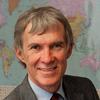In January and February 2018 I made research visits to Moscow to carry out work related to the Research Laboratory on the Economics of Health and Health Reform at the Russian Presidential Academy of the National Economy and Public Administration (RANEPA), which I co-direct on a part-time basis (see my OIPA Blogs of 12 February 2017 and 12 July 2017 . While in Russia I completed formalities related to the extension of the Laboratory for an additional year, finalised the research plan for 2018, and discussed academic work with colleagues.
Over the past four years the RANEPA project has supported my research on health topics (e.g. international comparison of health reforms) and on ageing and the elderly. The latter generated my 2017 article in The Journal of Population Ageing on The Changing Capabilities of Cohorts of the Elderly in Russia During 1990-2020: Measurement Using a Quantitative Index. My previous blogs last year reviewed this article, which describes and evaluates the different life experiences of five birth cohorts (1930, 1935, 1940, 1950 and 1960) and measures their capabilities when they turned/will turn 60 in 1990, 1995, 2000, 2010 and 2020. However, they did not call attention to the fact that the article emphasized the importance of the linkages between capabilities of the elderly (Health Status and Medical Care as a key complement to the Enabling Environment) and the national health production process, which are shown in the diagram below.
The concepts and models related to production processes that I have used repeatedly in my research were developed initially for my 1980 Cambridge Ph.D. dissertation on The Economics of Health in the USSR. They were based on the ideas of my Supervisor, Prof. Sir Richard Stone, a pioneer in the development of systems of national accounts and in the use of quantitative methods in economics (Nobel Prize in 1984). While I was starting my doctoral research, he was completing work on the influential 1975 U.N. report Toward a System of Social and Demographic Statistics (SSDS). In my dissertation I used methods from the SSDS (flows depicted by vectors and matrices, absorbing markov chains, input-output) and the then new concept of the production of health to create a model of the national health production process that linked demography, the activities of the health sector, and the economy. Subsequently I have made use of similar models to analyse the national security production process (1985 onward), the second economy (illegal transactions) (1988 onward), the defence sector production process (1990 onward), and the capabilities of the elderly (2017). This work has had clear linkages to public administration and public policy and therefore is of interest to RANEPA.
My most recent article (as the lead author with two Russian scholars at the Higher School of Economics (HSE), Sergey Shishkin and Alexandr Temnitsky) incorporating concepts based on production processes is entitled Motivations of Doctors in the UK and Russia, 2000-2020: Concepts, Doctors’ Perceptions, and Evidence. This paper attempts to answer questions about hierarchies of motivations of doctors and the influences on motivation in medical systems of changes in work conditions and of financial remuneration (salaries versus performance-based pay). The article contains a theoretical section on the multi-dimensional motivation function of doctors and the influences on it of the health production process, which is depicted in the diagram below. It then makes use of UK and Russian official statistics and survey data to evaluate developments affecting the motivation of doctors in the two countries over the period 2000-2017. During my recent visits to Moscow I agreed with Prof Shishkin on the final changes that need to be made before submitting the article to a journal.
I also discussed health reforms in Russia with Prof. Shishkin. For the past several years he has been the Head of the Working Group on Health at the Centre for Strategic Analysis (directed by Alexei Kudrin), which has been preparing a comprehensive document entitled Strategy for Russia During 2018-2024. It will provide analyses of current situations in sectors of the economy and in policy spheres (e.g. foreign relations) and reform proposals to the government in the current six-year presidential term i.e. beginning March 2018. On 21 February the health component of the Strategy was published (in Russian) with the title of The Health Service: Necessary Answers to Contemporary Challenges. The report presents critical reviews of the state of health in the country (e.g. per capita health expenditures in 2015 were $762 in China, $1,414 in Russia, and $4,145 in the UK) and of drivers of future changes (e.g. population ageing, rapid technological progress). It then proposes health reforms to achieve the following six objectives: 1. Acceleration of the development and provision of biomedical technologies; 2. Enhancement of healthy lifestyles; 3. Improvement of the availability of high-quality medical services; 4. Improvements in the work conditions and income of medical personnel; 5. Establishment of a more effective drug supply system; and 6. Increases in the effectiveness of health financing. The report identifies success indicators, sets ambitious targets for 2024 (e.g. life expectancy at birth to rise from 71 years in 2016 to 76), and proposes budgets to support for the reform measures.
In the 2018 research plan for the RANEPA Laboratory, I have agreed to produce three studies that eventually could generate publications in academic journals: (1) Motivation and Performance of Doctors of Generation Y in the UK and Russia: Changes from the Past and Challenges for the Future. The idea argument of this co-authored this paper will be that doctors from Generation Y (Millennials) in the UK (now 25% of NHS doctors) and Russia have different attitudes to careers and motivations from those of their predecessors in Generation X and the Baby Boomers.; (2) A Comparison of Health Inequalities in the UK, Russia, China, and USA: Coverage, Depth of Benefits, and Expenditures. The key organising concept in this paper is a three-dimensional diagram of health inequalities that initially was presented in a 2008 WHO report. A variant of it relating to North Korea is shown in my OIPA blog of 1 November 2017; (3) Measurement of Health Inequalities in the UK and Russia. This co-authored paper will be based on my past research on inequalities in health in the USSR/Russia and on comparisons of health sectors in the UK and Russia, as well as on more recent work on health in contemporary Russia by a Generation Y researcher in the Laboratory. The article will examine health inequalities related to age (notably, the circumstances of the elderly), socio-economic class, and residence (urban-rural, regions).
During my Moscow visit I had an interesting meeting at the HSE Institute of Social Policy with sociology colleagues who are involved in a major new research project on Active Ageing in Russia. We discussed their plans and the possibility of my involvement in the future in this project. I had other meetings at HSE that were concerned with my appointment to a position as an external scholar on the new Dissertation Council of the Department of Public Administration.
About the Author
Christopher Davis is Professorial Research Fellow at OIPA. He is Reader in Command and Transition Economies at the University of Oxford, Fellow of Wolfson College, and Head, Research Laboratory on the Economics of Health and Health Reform, Russian Presidential Academy of the National Economy and Public Administration. He has carried out research related to demography, health, economic systems, industry and defence related to the USSR and Russia throughout his career.
Comments Welcome:
We welcome your comments on this or any of the Institute's blog posts. Please feel free to email comments to be posted on your behalf to administrator@ageing.ox.ac.uk or use the Disqus facility linked below
Opinions of the blogger is their own and not endorsed by the Institute
Comments Welcome: We welcome your comments on this or any of the Institute's blog posts. Please feel free to email comments to be posted on your behalf to administrator@ageing.ox.ac.uk or use the Disqus facility linked below.













